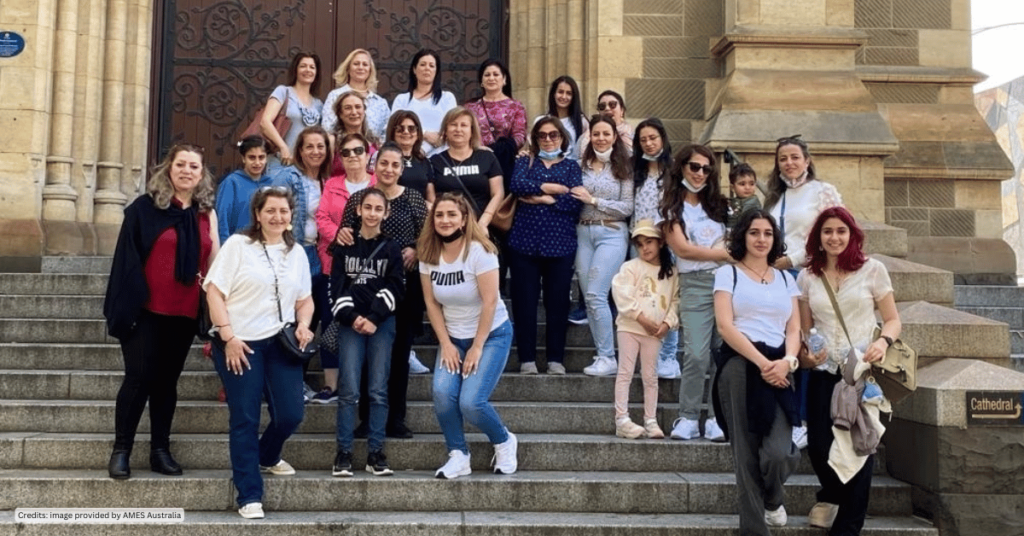Women from culturally diverse communities are at the most disadvantaged when it comes to workplace equity and the gender pay gap, new research reveals.
They are more likely to be passed over for promotion and they find it hardest to gain employment in the first place, the research shows.
Research by Victoria’s Commission for Gender Equality in the Public Sector found a pay gap of 19 per cent between Culturally and Linguistically Diverse (CALD) women and non-CALD men.
The research report, titled ‘Intersectionality at Work’, found only three per cent of CALD women surveyed in the study reported that they held a senior management role, and only 9 per cent were in a supervisory position, compared with CALD and non-CALD men at 14 per cent and 21 per cent respectively.
CALD “women experience even worse leadership outcomes than other disadvantaged groups, such as First Nations women, with representation at six per cent and 11 per cent respectively and women with disabilities, with representation at five per cent and 12 per cent respectively and transwomen at 4 per cent and 10 per cent respectively,” the report said.
It found pay gaps were also significant between CALD women and non-CALD men at 19 per cent.
“The pay gaps between CALD men and non-CALD men (11 per cent) and non-CALD women and men (13 per cent), as well as between cisgender women and cisgender men (15 per cent) – while still high – were notably smaller.
The report found that CALD women have a lower rate of workforce participation than CALD men, at 47.3 per cent to 69.5 per cent.
It said CALD women face a range of barriers to employment and career progression based on racist attitudes and assumptions.
“These include being denied training and other career advancement opportunities such as guidance and mentoring, being overlooked for promotion, despite receiving good feedback,” the report said.
They also include being subjected to a higher bar, underestimated, and negatively singled out compared to non-CALD women colleagues.
The report concluded another barrier was working in culturally unsafe workplaces where practices of racism, sexism, tokenism, and implicit and explicit bias are going unaddressed.
It said limited recognition of overseas education, work experience, and qualifications and a higher likelihood of working in unstable and casual roles within lower-paid industries and sectors as a result, was also a barrier.
The study cited ABS data which showed 90 per cent of employed male recent migrants were employed full-time compared with just 63 per cent of females.
Related: AMES Australia welcomes the Government’s response to Disability Royal Commission
The study was carried out among public sector workers in Victoria, but the authors say the findings are relevant across all sectors.
Data from migrant and refugee employment agency AMES Australia also shows CALD women are among the cohorts who find it most difficult to secure employment.
The gender ratio data show an average gap of 15 per cent between CALD women and CALD men in successful employment outcomes.
The gap grows to around 24 per cent when comparing CALD women with non-CALD men.
Also, CALD men accessed 25 per cent more wage subsidies to secure employment than CALD women.
CEO of migrant and refugee settlement agency AMES Australia Cath Scarth said it was clear there is a gender pay gap in almost every sector.
“The research shows we have work to do to bridge the gap that people from marginalised communities face in the employment space, and especially women from culturally diverse backgrounds,” said Scarth.
“The data shows women are twice as likely to be harassed at work and eight in every ten workers taking parental leave are women,” she added.
“When you look at the issue through the lens of intersectionality, inequality is even higher. Culturally diverse women are even more likely to be victims of pay gaps.”
“We need to build on the success of Victoria’s new Gender Equity Act and roll out similar initiatives beyond the public sector,” she said.
Menchie Khairuddin is a writer Deputy Content Manager at Akolade and content producer for Third Sector News. She is passionate about social affairs specifically in mixed, multicultural heritage and not-for-profit organisations.
- Menchie Khairuddinhttps://thirdsector.com.au/author/menchi-kakolade-co/
- Menchie Khairuddinhttps://thirdsector.com.au/author/menchi-kakolade-co/
- Menchie Khairuddinhttps://thirdsector.com.au/author/menchi-kakolade-co/
- Menchie Khairuddinhttps://thirdsector.com.au/author/menchi-kakolade-co/











